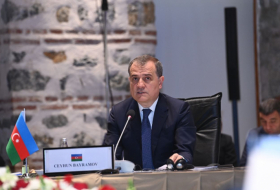Iran had `coordinated effort` relevant to atom bombs - IAEA

In a report required under that deal, titled "Final Assessment of Past and Present Outstanding Issues Regarding Iran`s Nuclear Programme", the International Atomic Energy Agency (IAEA) gave its clearest assessment of Iran`s past activities in more than a decade of investigation.
"The Agency assesses that a range of activities relevant to the development of a nuclear explosive device were conducted in Iran prior to the end of 2003 as a coordinated effort," the IAEA said in the confidential report to its Board of Governors viewed by Reuters.
Those activities continued after 2003, though in a less coordinated manner, and there was no credible indication of any beyond 2009, the agency said.
The United States, which for years locked horns with Iran over its nuclear program and dismissed its assertions that its aims were entirely peaceful, welcomed the finding.
"The IAEA report was consistent with what the United States has long assessed with high confidence," State Department spokesman Mark Toner told reporters. "And that is Iran had a nuclear weapons program that was halted in 2003."
CASE CLOSED?
Toner said the report meant the IAEA would be able to close the file on whether Iran had sought nuclear weapons in the past, something Iran has been insisting on if it is to uphold its end of the deal with major powers.
"Once the (deal) is implemented, we will have assurance that these types of past activities cannot occur again," Toner added. Iran has said it expects the deal to be implemented in January.
The July deal states that the six major powers will now submit a resolution to the IAEA Board of Governors "for taking necessary action, with a view to closing the issue" of so-called possible military dimensions (PMD) of Iran`s nuclear activities.
"There`s no smoking gun in there but we didn`t expect one," one Vienna-based diplomat said of the report. "Importantly, it`s not a clear balance sheet for Iran."
The report said Iran`s activities had not gone as far as building a nuclear weapon, and there had been no credible indications that nuclear material had been diverted to that end.
"The Agency also assesses that these activities did not advance beyond feasibility and scientific studies, and the acquisition of certain relevant technical competences and capabilities," the IAEA said of Iran`s past activities.
Iran`s senior nuclear negotiator, Deputy Foreign Minister Abbas Araqchi, said shortly after the report was circulated to IAEA member states that it showed the program had no military dimensions.
MILITARY SITE
Although he disagreed with that view on the agency`s findings, the Vienna-based diplomat said the report would make it possible to close the matter of whether Iran`s past activities were linked to weapons.
"The report allows for procedural closure of the PMD file but this will not limit the agency`s ability to ... look at concerns if they arise," the diplomat said.
Technically, Iran cleared a more crucial hurdle towards sanctions relief on Oct. 15, when it provided the agency with enough information to draw up its report.
The report`s wording was, however, stronger than had been expected after IAEA Director General Yukiya Amano said last week the assessment would not be clear-cut.
It said differences with Iran remained over a building at the Parchin military complex, where Iran has been accused of carrying out suspicious high explosives testing.
"The information available to the Agency, including the results of the sampling analysis and the satellite imagery, does not support Iran’s statements on the purpose of the building," the IAEA report said.
The IAEA`s decision to let Iranian technicians take samples at Parchin under agency supervision led critics of the nuclear deal in Washington and Israel to say the arrangement allowed Tehran to inspect itself.
Tehran said IAEA personnel were not present at Parchin when they took the samples, though Western diplomats denied that, saying agency experts were on site, albeit not physically in the room where the samples were taken.














































